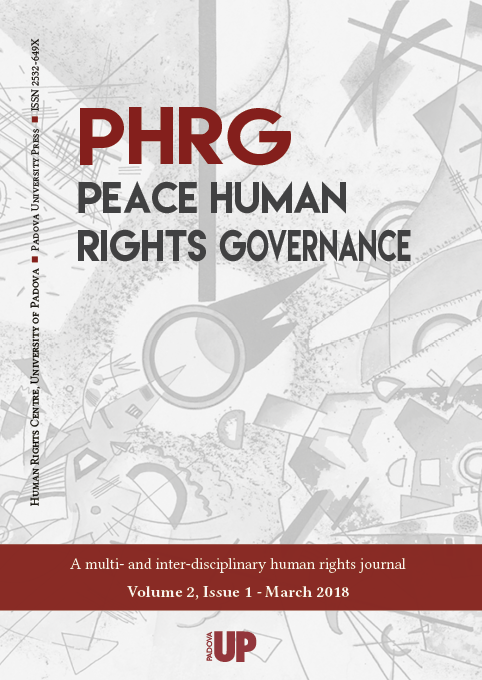Collections

Dum Vivimus Vivamus. The Tamils in Sri Lanka: a right to external self-determination?
- Sito internet
- Peace Human Rights Governance 2(1)
- Pubblication type
- Articolo / Saggio
- Pages
- 23-50
- Language
- EN
With its independence in 1948, Sri Lanka enshrined the sole human rights protection in its first post-colonial constitution. Art. 29.2 aimed to safeguard minority rights in this multi-religious and multi-cultural country. This approach, however, never translated into actual protection of the country’s minorities. Minorities’ rights were deliberately targeted to expand public space for the ethnic majority, the Sinhala. Sri Lanka shifted from parliamentary democracy to a militarised ethnocracy, perpetuating the Sinhala-Buddhist approach to nation-building, while alienating and isolating minorities – such as the largest minority group, the Tamils. The two autochthonous constitutions from 1972 and 1978 were, as renowned human rights scholar Dr. Neelan Thiruchelvam formulated, instrumental to further foment the ethnocratic state order. Against this background, the conflict/civil war between the Sri Lankan government and Tamils/Liberation Tigers of Tamil Eelam can be seen as an illustration of Foucault’s theory of biopolitics where the social body must ensure the maintenance of its survival, is entitled to kill others and wars are carried out to ensure its own existence. This leads to the following questions, which the paper aims to answer: was post-colonial nation-building in Sri Lanka based on ethnocidal politics to either assimilate or annihilate minorities within Sri Lankan ethnocracy? In consequence, if ethnocidal politics drove ethnocratic nation-building in Sri Lanka, isn’t the failure to accommodate the right to internal self-determination opening the gates to the right to external self-determination of the Tamils, giving effect to art. 1.2 of the United Nations Charter and being a precursor for a remedial right to secession?

